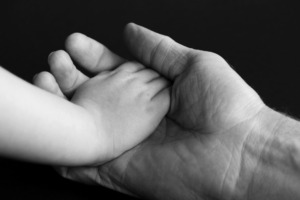Knowing and Doing What Is Expected of Me
Warren Lehr | July 2022
Warren Lehr | July 2022
 The typical “handle your duties, do what is expected of you” as an employee, a son, a daughter, a wife, a husband, or a parent is an important aspect of responsibility, but there is another aspect of responsibility that I would like to focus on.
The typical “handle your duties, do what is expected of you” as an employee, a son, a daughter, a wife, a husband, or a parent is an important aspect of responsibility, but there is another aspect of responsibility that I would like to focus on.
I want to talk about what I believe to be our #1 responsibility, not simply responsibility, but our most important responsibility…. to emphasize and model character development, because when we handle this responsibility, everything else falls into place, and doing what is expected of me takes on much more meaning.
In my role at the City of Owasso, I often say, “The most important thing we do is identify, hire, train, and retain ‘good people.’” And by good people, I mean people of good character. One of the ways we do this is with criteria we call the “4 C’s”—Character, Competency, Culture, and Chemistry. Character is first. General Norman Schwarzkopf said, “Leadership is a potent combination of strategy and character. But if you must be without one, be without strategy.” I think we’re getting better every year at identifying character, hiring for character, and training character (as well as competence, chemistry, and culture, all for which character plays largely into).
No one is born with good character. It must be developed. And we have a responsibility to develop it in ourselves and in others we are responsible for.
At the City, we take it as a serious responsibility to do all we can to develop not only the character of our teams, but to challenge all of Owasso to grow in character as well and to recognize good character whenever and wherever we can.
Four-time World Weightlifting champion Jerzy Gregorek said, “Easy choices, hard life. Hard choices, easy life.” While I’m reluctant to say life can really be “easy” you get the point…No one is born with good character. We have to develop it, often by making the harder choices in life, not the easy ones.
C. S. Lewis, the famous Oxford professor and author wrote, “Every time you make a choice you are turning the central part of you, the part of you that chooses, into something a little different from what it was before. And taking your life as a whole, with all your innumerable choices, all your life long you are slowly turning this central thing either into a heavenly creature or into a hellish creature.”
And lest we think this proverbial image of an angel on one shoulder and a devil on the other is strictly Christian in its roots, Plato, about four centuries before Christ, used the word picture of a chariot driver with two horses tied together, each fighting for domination. One horse he called “a lover of honor with modesty and self-control,” while the other was “a companion to wild boasts and indecency … shaggy around the ears – deaf as a post – and just barely yields to horsewhip and goad combined.”
The Apostle Paul, in his letter to the Galatians (6:7-9), wrote:
7 Do not be deceived: God cannot be mocked. A man reaps what he sows. 8 Whoever sows to please their flesh, from the flesh will reap destruction; whoever sows to please the Spirit, from the Spirit will reap eternal life. 9 Let us not become weary in doing good, for at the proper time we will reap a harvest if we do not give up.
To borrow an analogy I read recently, imagine that you hold two seeds in your hand. One, you can plant anywhere and it will grow easily without care, but will produce ugly, terrible tasting fruit. The other seed takes time and consistent attention to cultivate – but the fruit it produces is beautiful and delicious. Which seed would you choose to plant, water, and grow? Applying that same analogy to each of us…We can do what makes us feel good now and later reap ugly (and usually unseen) consequences… OR… We can exercise our most important responsibility and do what will bring joy and peace later on…Which decisions will we strive to make? Author and pastor Andy Stanley said, “Your irresponsibility eventually becomes someone else’s responsibility.” That couldn’t be more true than of our responsibility to cultivate good character in ourselves and others.
The “law of the harvest” tells us that not only do we reap what we sow, but there is an amplifying effect: Our actions yield far more than we expect over time. Our decisions and actions today, both good and bad, have a way of taking root and producing far more fruit and consequences over time than we could ever imagine.
So, let’s continue to be responsible to build good character in ourselves and others. There’s a big payoff, not just in work performance, but in personal fulfillment, joy, and peace. Proverbs 21:21 tells us, “Whoever pursues righteousness and kindness will find life, righteousness, and honor.”
To close, let me simply say that developing good character should never be something we just talk about; it’s our responsibility. Real responsibility is not about what we achieve. It’s about who we become while we’re getting it done. Or, said another way, what we accomplish in this life (in doing what is expected of us) is not nearly as important as the character with which we carry out that responsibility.

 What is initiative?
What is initiative?